Lisa Christopher, MD
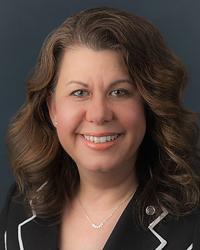
- Director, Johns Hopkins Myositis Precision Center of Excellence
Expertise: Rheumatology
Primary Location: Johns Hopkins Bayview Medical Center, Baltimore, MD
Join us from 7 to 8 p.m. on the second Tuesday of each month for a live discussion, including Q&A moderated by Kelly Geer Ripken, A Woman’s Journey’s national chair. Register for one or more of these complimentary webcasts below, and visit the on-demand library for past conversations.
Register Now!Inflammation can be found all over the body, and it is widely considered the root of some of the most debilitating diseases such as cancer, heart disease, Alzheimer’s disease and diabetes. Learn about current medical insights and assessments regarding inflammation and what can be done to decrease chronic inflammation levels, from Johns Hopkins rheumatologist Lisa Christopher-Stine.

Expertise: Rheumatology
Primary Location: Johns Hopkins Bayview Medical Center, Baltimore, MD
The American Cancer Society estimates that the U.S. will see just over 2 million new cancer cases in 2024, and more than 611,000 cancer deaths. Johns Hopkins oncologist and immunology researcher Elizabeth Jaffee goes behind these numbers and shares optimistic research underway for improving the outcome for cancer, including research on personalized combination of various immunotherapy medications.

Research has shown that clinical use of psilocybin can be a beneficial tool for mental health professionals in treating a variety of mental health conditions such as treatment resistant depression, end of life distress, as well as substance use disorders. Join Johns Hopkins psychiatrist Mary "Bit" Yaden as she provides an update on the use of psilocybin in research and clinical settings.
According to the Parkinson’s Foundation, a new study estimates that nearly 90,000 people in the U.S. are diagnosed with Parkinson’s disease each year. This represents a steep 50% increase from the previous estimate of 60,000 diagnoses per year. Johns Hopkins neurologist Liana Rosenthal reveals what is behind this increase as well as other important information from Parkinson’s disease research.
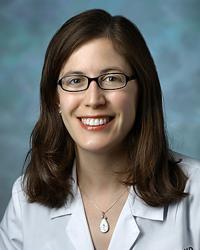
Expertise: Neurology
Primary Location: Johns Hopkins Health Care & Surgery Center - Green Spring Station, Lutherville, Lutherville, MD
According to the American College of Gastroenterology, gastroesophageal reflux disease (GERD) is thought to affect up to 20% of the U.S. population. Johns Hopkins gastroenterologist Monik Lammi explores the signs, symptoms and causes of GERD, and the various nonsurgical and surgical treatment options available.

Expertise: Gastroenterology
Primary Location: Johns Hopkins Endoscopy & Surgery Center - Columbia, Columbia, MD
The American Heart Association reports that about 6 million Americans are living with heart failure. It’s one of the most common reasons people age 65 and older go into the hospital. Johns Hopkins cardiologist Kavita Sharma shares details about the various causes and symptoms of heart failure and what can be done to manage this disease.
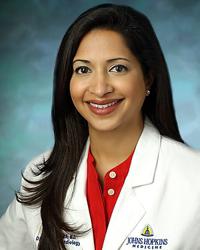
Expertise: Cardiology
Primary Location: Johns Hopkins Outpatient Center, Baltimore, MD
Recent estimates suggest that approximately 476,000 people may be diagnosed and treated for Lyme disease each year in the United States. This spreading epidemic now involves major regions of the United States including Maryland and the Mid-Atlantic region. Dr. John Aucott, infectious diseases physician and director of the Johns Hopkins Lyme Disease Research Center, will share new research and clinical trials that are taking place that help shed further insight into Lyme disease.
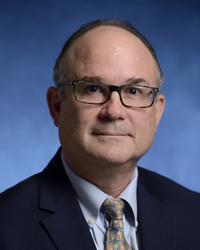
Expertise: Rheumatology, Infectious Diseases
Primary Location: Johns Hopkins Health Care & Surgery Center - Green Spring Station, Lutherville, Lutherville, MD
Do you know that half of your brain is used in vision? Neuro-ophthalmologist Amanda Henderson shares information about the connection between vision and some neurologic conditions such as multiple sclerosis, brain tumors, strokes, thyroid diseases, and high intracranial pressure.
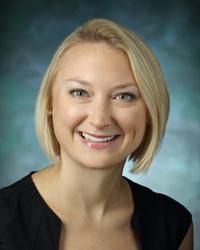
Expertise: Neuro-Ophthalmology
Primary Location: The Johns Hopkins Hospital, Baltimore, MD
Back pain is reported to affect 619 million people around the world, and neck pain is reported in 203 million people. Akhil Chhatre, a physical medicine and rehabilitation specialist and interventional pain specialist at Johns Hopkins, probes the various causes of neck and spine pain, and surgical and nonsurgical methods to regain function and reduce chronic pain.
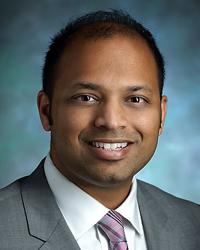
Expertise: Physical Medicine and Rehabilitation, Orthopedic Surgery
Primary Location: Johns Hopkins Health Care & Surgery Center - Green Spring Station, Lutherville, Lutherville, MD